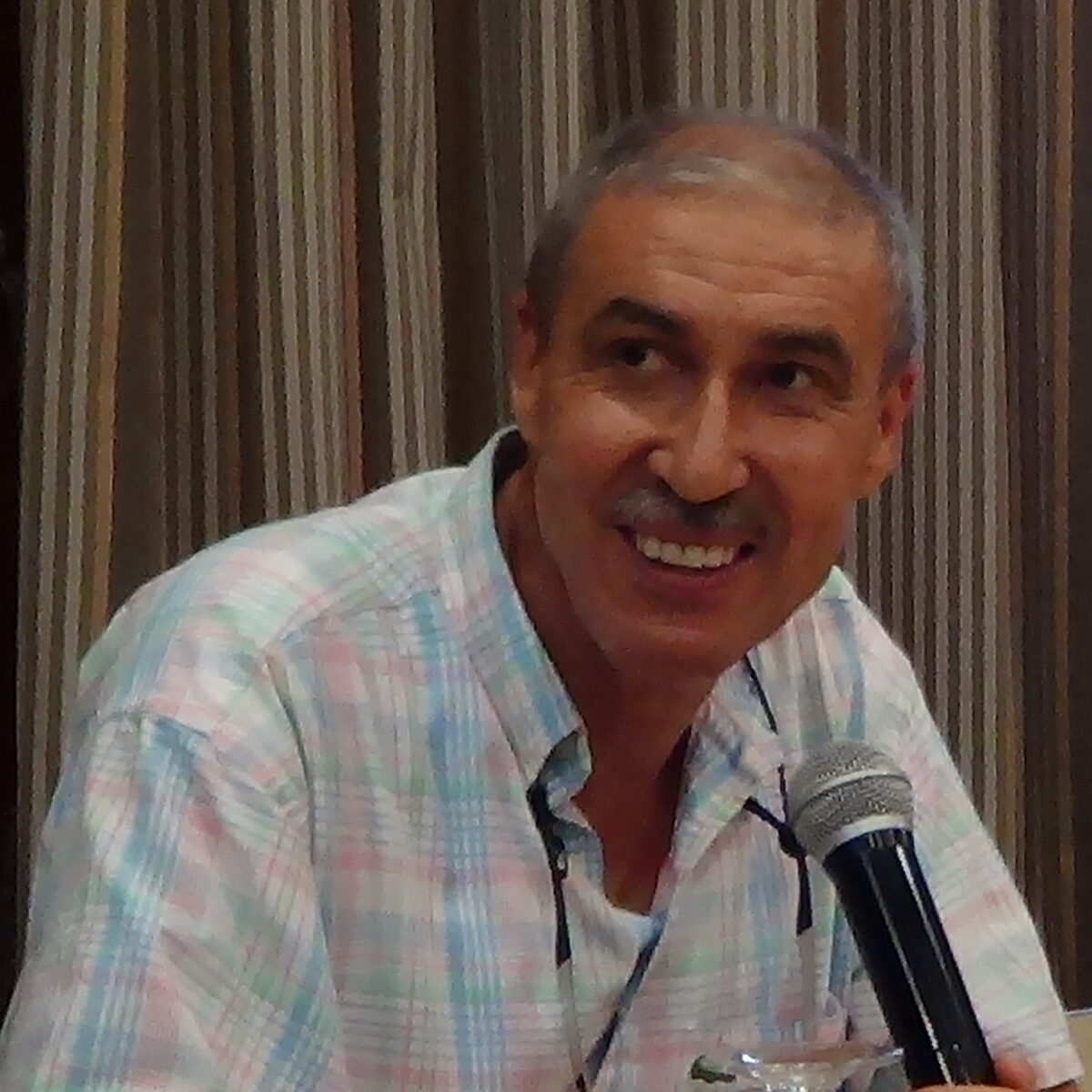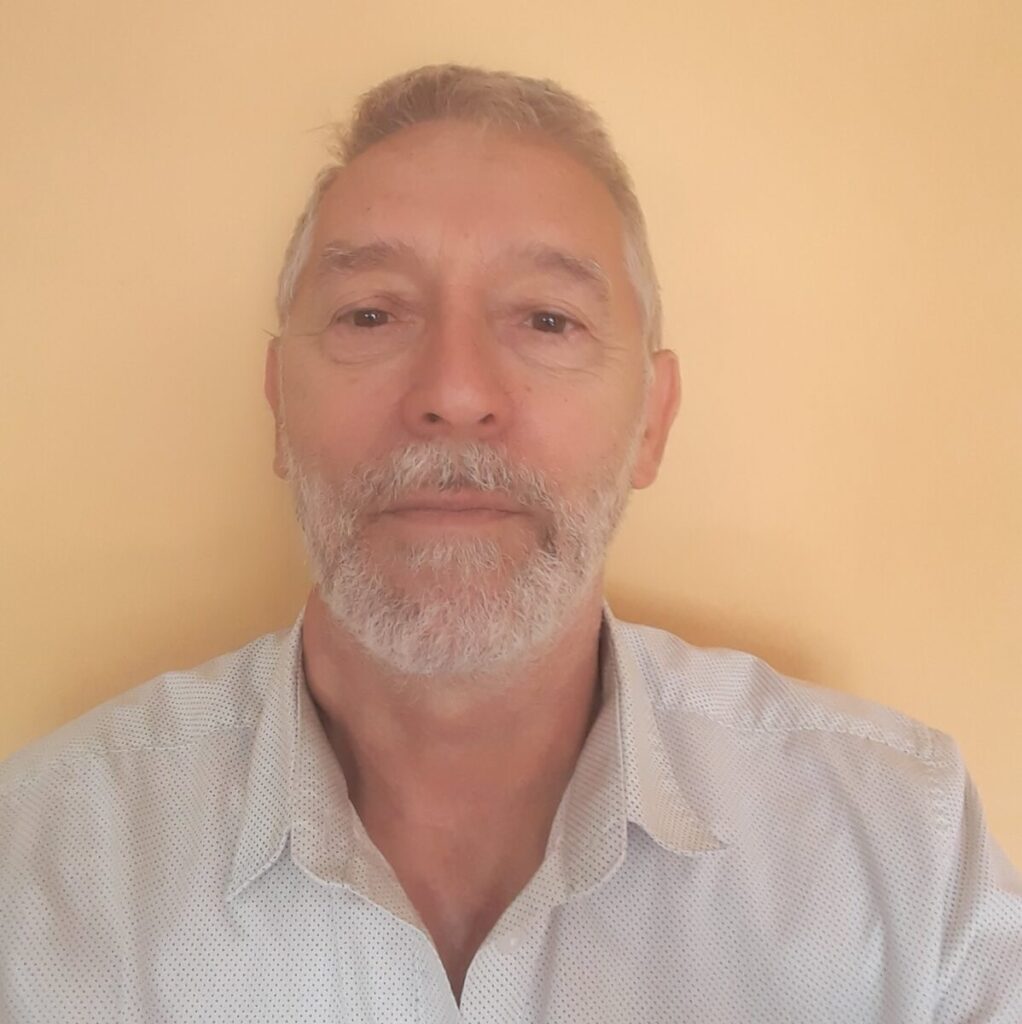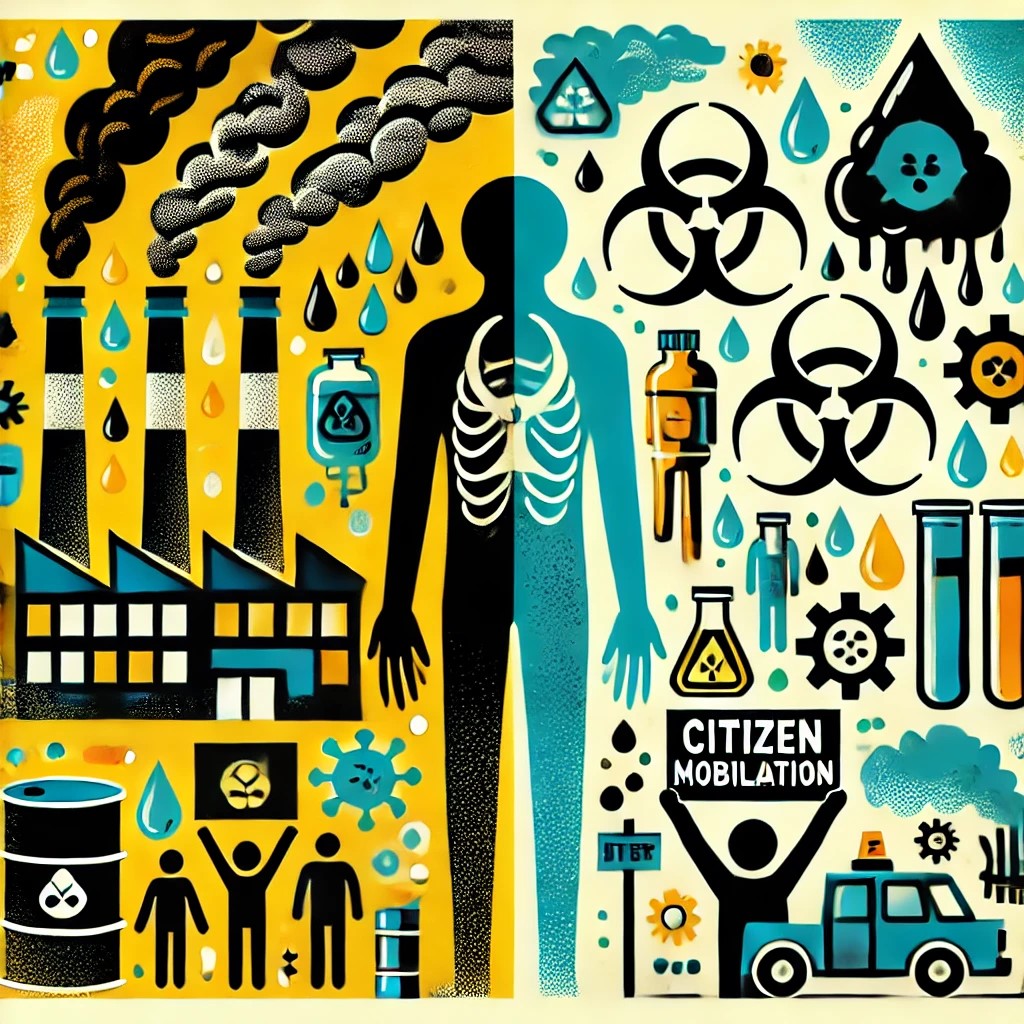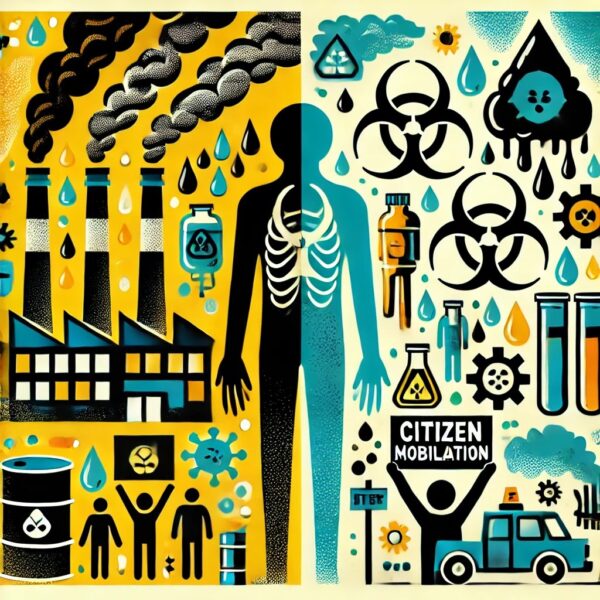Sfax, "the capital of the South" has experienced a continuous decline since the 1980s, with multiple causes: globalization, the flight of economic and cultural elites to the Capital or abroad, the shift to a service economy... but one of the determining causes is the degradation of the quality of life due to industrial pollution - particularly chemical - despite citizen mobilization since 1980 and especially after the revolution of 2011.
Sociologist and ecological activist from Sfax, Fethi Rekik analyzes this exemplary case with the perspective of a scientist and shares this difficult struggle with the commitment of a citizen, in a dialogue with Bernard Mossé, historian, Research, Education, and Training officer of the NEEDE Mediterranean association.
# 5 Sfax in the regionalization project
Bernard Mossé: What is the state's attitude towards the situation in the region?
Fethi Rekik : You know that now the parties are in fact inactive although they exist by law. And then the experience of Sfax with political parties has always been a negative experience. My idea is that the development model of Tunisia since Independence has been based on a kind of privilege granted to the coastal region, in the northeast, including Nabeul and Sousse, and excluding the southern coast from Sousse. That is the main thing.
There are neglected interior regions like the Northwest. However, it is a region very rich in natural resources, favored by the climate. But these are regions said to be "handicapped" by natural conditions and therefore, little developed. And then there is tourism. Tourism is not only seaside tourism that is not profitable in my opinion. When we say that tourism brought in 6 billion dinars this year, it is not much compared to public investment. This is about as much as the income of Tunisians living abroad! Today there is a second Chamber.
The idea is not new, but it has just been relaunched and implemented by the President of the Republic, which consists of creating this second Chamber parallel to the parliament: the National Council of Governorates and Regions, which is composed of 4 or 5 governorates per region.
Sfax is part of the fourth region, including the governorate, also the governorate of Gafsa, which hosts the phosphate mining basin, those of Sidi Bouzid and Tozeur, known for their agricultural vocation (market gardening and arboriculture). The idea is interesting even if we do not see the relationship between these different governorates. The most important question would be: would the regions have a margin of autonomy in their own governance? Can we imagine, for example, a possibility of seeing a Region initiate a project in partnership with a foreign investor?
For the moment, the prerogatives of the Regions have not yet been defined, but according to some initial information, there is an egalitarianism regarding the presidency of the Region. For example, there will be no regional capital, but an alternation of the presidency between the different governorates throughout the mandate. If we are really going to address regional economic or health specificities, and explore opportunities for complementarity between the governorates, that could be a good thing.
It is an old request, but one that has never been implemented. Sometimes, it has only been formal. For example, before the revolution, the governorate of Sfax was placed, arbitrarily, in the same Region with those of Sousse, Mahdia and Monastir, all of which had a common tourist vocation...
But as a result, Sfax was harmed : being the second economic pole since independence, the governorate of Sfax was relegated to seventh place, according to development criteria, due to a lack of quality of life and attractiveness to investors, compared to two others in the same Region.
Bernard Mossé: This privilege is not new.
Fethi Rekik: Yes, Monastir was privileged under Bourguiba, his hometown. And Sousse is Ben Ali's hometown. The development model has remained the same and focused on low value-added sectors: clothing and especially seaside tourism, concentrated in the same governorates...
If we want to be competitive on a global scale, we will finally have to look at human resources: there are thousands of high-level Tunisian skills who have left in recent years for the United States, Europe or the Gulf countries, it is huge for a population like that of Tunisia, of which Sfax is one of the major providers of these skills.
And it is not only downstream of the training chain of these skills, for several years it is upstream: every year, there are thousands of high school graduates who leave Sfax for Germany to continue their studies and work there. If this continues it will be a big problem for Sfax but also for the whole country.
Bernard Mossé: Are there other factors still working against Sfax?
Fethi Rekik: Yes. There is another factor that weakens Sfax. To be competitive, to be a development hub, you need a road network that connects the city to other regions. There is of course the highway that goes from Tunis to Gabès via Cap Bon, Sousse and Sfax. The development of the country also needs cross-country roads connecting the main coastal cities with those in the West, but not only to the Capital.
But there is no highway from Sfax to the southwest, or a highway going to Libya, to the West towards Algeria. In Sfax, people and not only businessmen complain about the inactivity or the little activity of the airport and accuse the national company of bias: there is almost no traffic anymore, apart from a few flights to Libya and another provided by a foreign company. This is not significant for a governorate of this importance, its isolation is maintained by this “macro-cephalic” development model!
Bernard Mossé: We know a bit about this in France: the French highway network was also long centralized.
Fethi Rekik: Yes, but at this point, you risk inflating the capital, congesting it: we can't all live in Tunis...
This creates a feeling of marginalization in a good part of the interior of the country. These are the regions that voted for President Said: he is the representative of the people of the interior: we use the word El Jih and those who are not from the Center, in the geographical and economic sense...
Bernard Mossé: In France, the term "Provincials" is still sometimes used to refer to those who are not from Paris...
Fethi Rekik: Let me tell you an anecdote about this. I was invited a year ago by the Ministry of the Interior for a conference in a nice hotel in Gammarth, in the northern suburbs of Tunis. I was told that everything was fine, that the "interior" academics would be taken care of...
I said to him: are we the academics from the interior? Are you, in Tunis, the academics from the outside?
He apologized, but it is symptomatic of the representations, particularly of the Tunisians from Tunis.
Bernard Mossé: Has there been since 2011 a movement of revolt or expression of frustration from this Tunisia of the interior regions?
Fethi Rekik: That's pretty much what happened in 2019. There was a feeling of revolt in the regions abandoned by the government, against the Islamists; But not only against them, against the modernist party of Nidaa Tounes too. In fact, it's a feeling of revolt against the development model, and ultimately a feeling of revolt against democracy itself: "you are elected to move things forward, but ultimately nothing is done, growth remains close to zero. So it's useless... What's the point of democracy if it's just to alternate the parties in power...".
This is the explanation for the victory of Said elected by people outside the system, the marginalized.
The paradox of Sfax is that it is considered a governorate of the system because it would have its own means to develop. But it has never been a friend of the system and considers itself outside the system. It’s the tragedy of being considered in the system and not being there.
Bernard Mossé: Is it perhaps due to a gap between an old perception that persists of a prosperous and dynamic city while it is in decline? A gap between the past image and the present reality?
Fethi Rekik: Yes, there is still in common language the expression "Capital of the South," while it is a city left to itself for about twenty years: the idea of a metropolis is chimerical.
I give you one last concrete example of this lack of perspective for the country of which Sfax is a victim.
When I presented the waste collection crisis in Sfax two years ago, I wanted to show a crisis that is not just local, but that perfectly illustrates this general crisis of vision.
So we are going to create a new landfill. But why not move to another model, more radical and worthy of a great city? Why not think about creating a transformation and waste treatment company, which could be an exportable model for other cities in Tunisia and even for other countries?
While in Sfax, they would be ready to move forward, the central power refuses such an ambitious project, as it does not see why it would benefit Sfax rather than another city. So we remain in the temporary and immobility.
It is undoubtedly the lack of money, and there are surely other priorities: the crisis is not new, and since the revolution of 2011, salaries have increased without a recovery in growth. But above all, there is no general vision capable of supporting major projects like this that would combine economic development and the environment.
In fact, to summarize, the city of Sfax faces major challenges related to industrial pollution, lack of investment, and a centralized governance that is not favorable to its development. Civil society is trying to address these shortcomings, but structural changes and an opening to foreign capital are necessary to transform the region into a sustainable economic hub.
Biographies

Fethi Rekik is a professor (HDR) of higher education and scientific research and director of the research laboratory 'State, Culture, and Social Changes' at the Faculty of Letters and Human Sciences in Sfax, Tunisia. He has also been an ecological activist in his city of Sfax since the 2000s.

Bernard Mossé Historian, Research, Education, and Training officer of the NEEDE Mediterranean association. Member of the Scientific Council of the Camp des Milles Foundation – Memory and Education for which he was the scientific officer and coordinator of the UNESCO Chair "Education for Citizenship, Human Sciences, and Convergence of Memories" (Aix-Marseille University / Camp des Milles).
Bibliography:
Salem DAHECH and Fethi REKIK, "Road Traffic and Noise Pollution in Sfax (Southern Tunisia): A Multidisciplinary Study." Atmospheric Pollution Review, no. 3, 2012.
Amor BELHEDI, "Regional Disparities in Tunisia. Challenges and Issues," pp. 7-62 in The Conferences of Beit al-Hikma, 2019, 2017-2018, 194p + 112p in Arabic. Coll. Conferences, no. V.
Ali BENNASR, "Sfax: From Regional City to Metropolis Project." University Publishing Center. Globalization and Urban Change, pp. 79-95, 2010.
Fethi REKIK, "Environment and Sustainable Development between the Global and the Local, Case of the Kneïss Islands," CERES Review, no. 132, 2006
Taoufik MEGHDICHE, "Sfax's Relations with Southern Tunisia: Some Elements of Reflection," University Research Review, no. 8, 2010, pp. 41-61.

From this conversation, AI generated a stream of illustrations. Stefan Muntaner fed it with editorial data and guided the aesthetic dimension. Each illustration thus becomes a unique work of art through an NFT.
